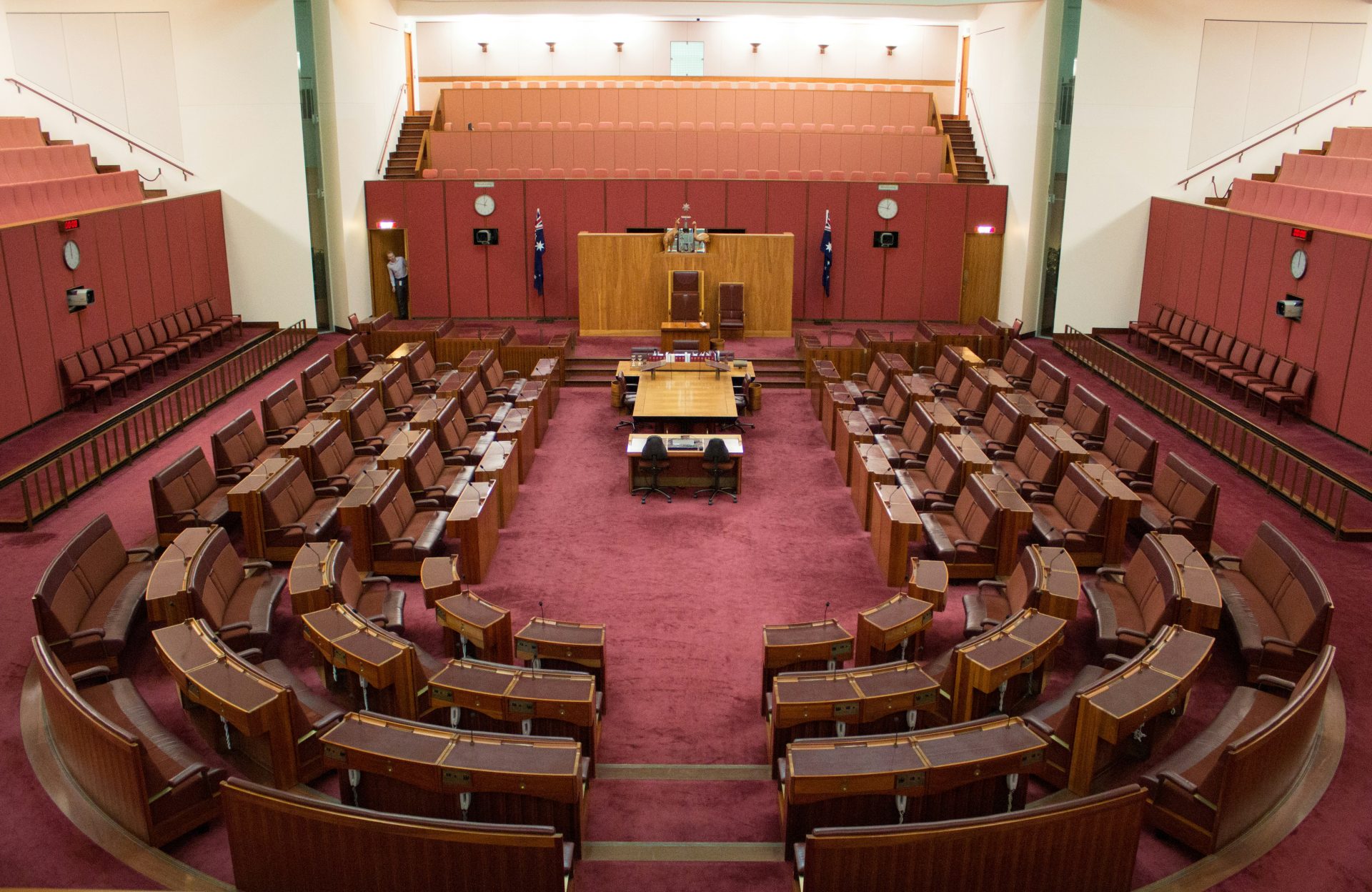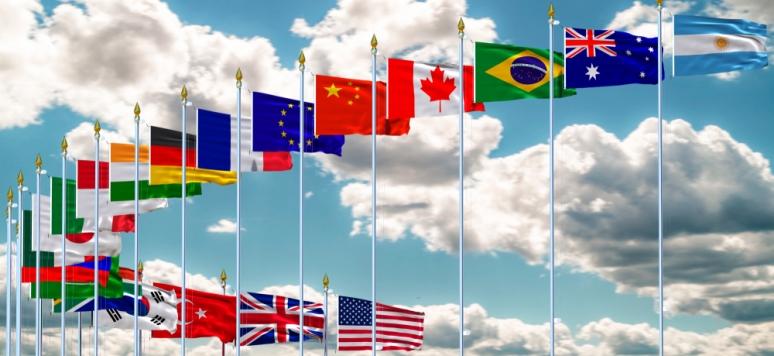The World Needs GOD More Than Ever Before
“As laws and institutions must go hand in hand with the progress of the human mind. (…) Institutions must advance to keep pace with the times.” — Thomas Jefferson
We are living through a critical moment in the history of humanity, where the speed of innovation and the scale of global challenges demand a profound reassessment of our governance structures. This year, the Horasis Global Meeting, held for the first time in South America, in Vitória, Brazil, will bring together global leaders to discuss these challenges and how we can build bridges to the future.
As we engage in discussions on issues such as climate change, poverty, the decline in public trust, and many other pressing matters, it becomes increasingly clear that our current democratic system, designed centuries ago, is increasingly inadequate to meet the demands of the 21st century. The proposal for a “Genesis-Oriented Democracy” (G.O.D), understood as “Results-Oriented Democracy,” emerges as a necessary solution to transform not only governments but society as a whole.
Modern democracy, as conceived in the 18th and 19th centuries, was not designed for today’s hyperconnected and globalized world. Just as the internet revolutionized virtually every sector of the economy, enabling innovations in health, education, and other areas, a new democratic infrastructure could have a similarly profound and widespread impact on a scale never seen before.
Imagine the internet: its physical infrastructure—cables, servers—and open protocols have allowed the creation of thousands of innovations worldwide. From remote work to e-commerce, through AI platforms, the internet has distributed wealth and knowledge in ways previously unimaginable.
Now, envision a new democratic infrastructure that replaces narratives and ideologies with measurable metrics and tangible results. By creating a system that is more agile, adaptable, and focused on empirically verifiable medium- and long-term outcomes, we could unlock the human potential to address countless problems that today seem insurmountable – all in one sweep.
For democracy to be attractive to other countries and to perpetuate through generations while safeguarding individual liberties, it is essential that its citizens are proud of it. Moreover, for groups in autocratic countries to desire such a system, it is vital that it ‘knows’ how to resist corruption attempts and has a plan that facilitates its adoption.
The number of people lifted out of poverty each year, the reduction of environmental pollution and the demand for health services alongside improvements in the health system driven by frequent physical activities and excellent education, the sustainable growth in labor demand, the increasing confidence of foreign investors in the local economy, price stability, and the reduction of violence and trafficking across borders, among many other factors—these are just some examples of the metrics that will guide the political system at all levels—federal, state, and municipal.
To achieve these goals, public institutions must operate under a system of natural selection, where experiments, civil servants, and leaders who perform well remain and are even rewarded, while those who do not meet targets are carefully filtered out. “Genesis” encapsulates this idea of creation and perfection, reflecting a democracy that not only reacts but proactively creates a better future for all.
This transition requires a united movement across the political spectrum, from left to right, centered around a common good that transcends this generation, aiming to advance society systematically through scientifically measured trial-and-error mechanisms to achieve a thousand years or more of prosperity.
The G.O.D proposal directly addresses this issue. By separating the functions of goal-setting and execution—between, for example, the President and a Prime Minister, similar to the private sector model of a Board and CEO—we ensure a clear vision for the future and direct responsibility for implementing that dream, enhancing accuracy and avoiding conflicts of interest.
A Three-House Legislature becomes fundamental. The People’s House, composed of citizens randomly selected as in ancient Greece, ensures that the voice of the population is directly represented, reducing elite biases, partisan schemes, and bringing popular concerns to the forefront of the debate. The House of Notable Knowledge brings together specialized expertise from various fields, allowing the most experienced and intelligent minds in society to be involved in the political process. Finally, the Senate is composed of professional politicians elected by popular vote who shall articulate consensus and conclusion.
By adding a layer of continuous evaluation through a Calibration Judge – who assesses laws not by their intentions but by their results- we create a dynamic and responsive system. This adjustment to laws based on empirical evidence protects citizens from decrees that are disconnected from the region’s reality.
In my opinion, this proposed system not only accelerates the government’s ability to implement innovations but also allows these innovations to be continuously refined and improved as new data and technologies emerge.
The inefficiency of current democracies is not just theoretical; it is well documented. According to the Corruption Perceptions Index, many democratic countries are facing a rise in corruption, which erodes public trust and slows the implementation of effective policies. Additionally, a Pew Research Center study showed that even in the developed world, trust in government is declining, with citizens increasingly skeptical of their leaders’ or institutions’ ability to solve society’s challenges.
No discussion on the need for a new democratic infrastructure would be complete without addressing the issue of poverty. Regimes that fail to eradicate poverty will always be vulnerable to populism and dictatorship. The reason is simple: people under immense economic pressure are more susceptible to the simplistic promises of populist leaders, who offer miraculous but often unfeasible solutions. A study published by Science Daily indicates that social inequality is one of the factors that fuel support for demagogues.
If a democratic system cannot effectively address poverty, it becomes fertile ground for disinformation and extremism, which in turn threatens the very existence of democracy. G.O.D, with its emphasis on measurable and adjustable results, offers a framework through which politicians who fail to reduce poverty during their term are out of the game, while those who succeed are honored.
Do you believe that the current governance system is truly capable of solving the greatest challenges facing humanity? Are issues like climate change, safe artificial intelligence, cybersecurity, the proliferation of weapons of mass destruction, the refugee crisis, and the fight against disinformation being effectively addressed by the governance model we inherited from past centuries? Or is it time to reconsider and deeply update our democratic structures so that we can tackle these challenges in a more systematic, intelligent, and sustainable way?
I look forward to discussing this and many other topics with you at the Horasis Global Meeting.
References: Evidence-based policymaking in the US and UK; Corruption and COVID-19 worsening democratic backsliding; ECONOMIC AND SOCIAL BENEFITS OF INTERNET OPENNESS; The Impact of Digital Technology on Economic Growth Mulhleisen
Daniel R. Schnaider is the co-founder of Wisefy AI Powered Supply-Chain (www.wisefy.ai) and Platform Capital (www.platformcapital.solutions).



